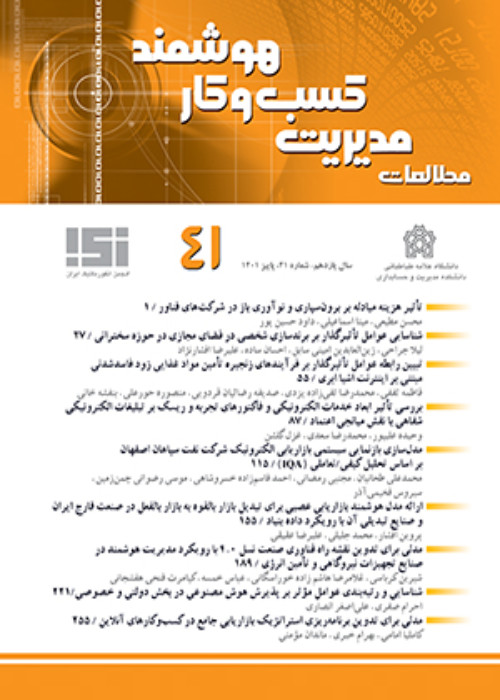Semantic Mapping of the Pattern of Strategic Management Knowledge Acquisition in Institutional Organizations
Many organizations employ knowledge engineers to acquire tacit knowledge from experts using the principles and techniques of knowledge acquisition. The main purpose of this study is to provide a comprehensive pattern of knowledge acquisition in institutional organizations. For this purpose, Semantic mapping (one of the research methods in Soft Operation Research) has been used; and using a graphical arrangement that shows the main ideas and relationships between the meanings of words, a kind of visual classification of knowledge acquisition is proposed. In this regard, first, the central concept was examined and related micro-concepts including 15 micro-concepts were identified and recorded in the pattern. These included “agreement and relationship of knowledge acquisition system with other organizational systems”, “connection of knowledge acquisition system to knowledge management cycle”, “officials and trustees of knowledge acquisition”, “special characteristics of institutional organizations” and “basic layers of the organization”. Each of these concepts was then considered a central idea, and the development of branches to extract the micro-words associated with each concept continued, sometimes up to four layers. The total number of concepts drawn in this pattern were 183.Keywords: Knowledge Acquisition, Tacit Knowledge, Institutional Organizations, Semantic Map, Cognitive Mapping.
- حق عضویت دریافتی صرف حمایت از نشریات عضو و نگهداری، تکمیل و توسعه مگیران میشود.
- پرداخت حق اشتراک و دانلود مقالات اجازه بازنشر آن در سایر رسانههای چاپی و دیجیتال را به کاربر نمیدهد.



